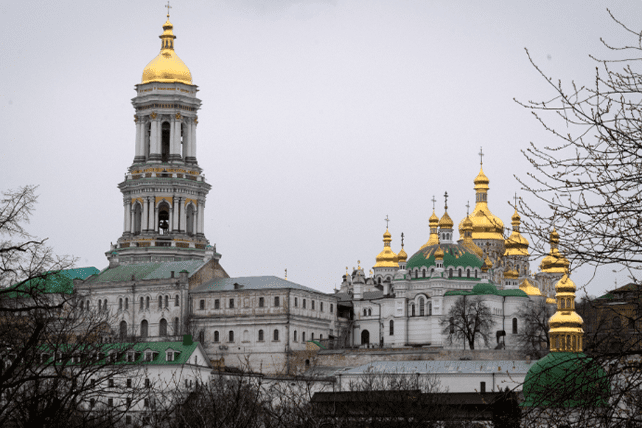Thousands of parishes in Ukraine have re-registered themselves as part of the OCU, particularly since the 2022 invasion by Russia.
Since the outbreak of the war, 68 UOC priests have been accused of collaboration, treason and other offenses, according to the SBU, while this year alone, nearly 20 of the church’s leaders have been stripped of their Ukrainian citizenship.
In December 2022, Ukraine’s constitutional court approved a law that officially changed the church’s registered name to highlight its affiliation with Russia. Today, it is legally known as The Ukrainian Orthodox Church-Moscow Patriarchate. At the same time, Zelenskyy signed a bill sanctioning several leading members of the UOC and instructing Ukraine’s Parliament and security services to further investigate their ties to Russia.
In a statement released Thursday, the Russian-linked church argued that the draft law violates its religious freedom and constitutional rights. While acknowledging that the legislation does not name the Ukrainian Orthodox Church, the church said that it “prohibits the activities of religious organizations associated with the aggressor state” and “is essentially aimed at banning the Ukrainian Orthodox Church and violates the rights to freedom of religion of Ukrainian citizens who belong to the Ukrainian Orthodox Church.”
But Metropolitan Yevstratiy of Bila Tserkva, a spokesman for the independent Ukrainian church, said there is no evidence to show that the UOC has separated from Moscow. If the OUC is really operating free of Russian influence, he added, the draft law “will have nothing to do with their situation because this draft law imposes restrictions only on those subordinate to Russian religious centers.”
Moscow Patriarch Kirill immediately came to the defense of the OUC, noting his “sadness” that “in many countries of the world the children of our Church become objects of oppression and even bullying simply because they are bearers of centuries-old Russian culture, which is inseparable from the heritage of Russian statehood,” according to a statement released by the Moscow Patriarchate.
“The so-called abolition of Russian culture, shameless slander and unpunished destruction of the Ukrainian Orthodox Church are ways to oppose and quarrel those who are related to the single spiritual and cultural heritage created by the peoples of historical Rus.”
The church that retained its ties to Moscow still claims a higher number of total parishes than the OCU, but the number of parishes does not necessarily represent the total number of faithful, as the count doesn’t differentiate between large urban cathedrals and tiny village chapels. It also claims that many of the re-registrations were made by overzealous police officers without the knowledge of local congregations.
A study conducted last year found that a majority of Ukrainians identified with the OCU and only 4% with the Russian-linked church, though a larger number identified simply as Orthodox Christians without specifying either church.
This article originally appeared here.

